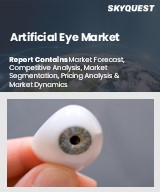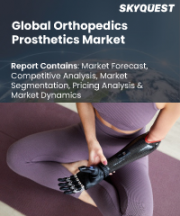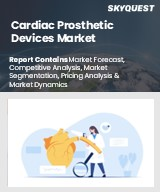
|
시장보고서
상품코드
1844136
보철용 라이너 시장 : 라이너 유형, 사지 유형, 최종사용자, 유통 채널별 - 세계 예측(2025-2032년)Prosthetic Liners Market by Liner Type, Limb Type, End User, Distribution Channel - Global Forecast 2025-2032 |
||||||
보철용 라이너 시장은 2032년까지 CAGR 8.14%로 6억 2,164만 달러로 성장할 것으로 예측됩니다.
| 주요 시장 통계 | |
|---|---|
| 기준 연도 2024년 | 3억 3,234만 달러 |
| 추정 연도 2025년 | 3억 5,947만 달러 |
| 예측 연도 2032 | 6억 2,164만 달러 |
| CAGR(%) | 8.14% |
보철 라이너의 기술 혁신과 임상적 통합의 발판을 마련하고, 다양한 치료 환경에서 편안함, 기능, 환자의 장기적 결과를 개선합니다.
의족 라이너는 잔존 사지와 의족 소켓 사이의 인터페이스 역할을 하며, 그 진화는 환자의 편안함, 이동성 및 장기적인 사지 건강에 중대한 영향을 미칩니다. 재료 과학, 제작 방법 및 임상 실습의 발전으로 라이너 선택은 순전히 기계적인 고려에서 피부 생리학, 활동 프로필 및 장기적인 조직 결과를 포함하는 다차원적인 결정으로 이동하고 있습니다. 임상의, 제조업체, 지불자는 현재 제품 차별화가 적합성, 내구성, 내구성, 디지털 치료 경로와의 통합에 동등하게 의존하는 상황에 직면해 있습니다.
본 보고서에서는 먼저 라이너 기술의 현황을 고령화, 만성질환과 관련된 사지 결손의 증가, 외래 환자 재활 모델의 성장 등 보다 광범위한 헬스케어 트렌드 속에서 라이너 기술의 현황을 파악하고자 합니다. 또한, 규제 당국의 감시, 상환 압력, 환자 보고를 통한 결과에 대한 새로운 관심이 어떻게 조달의 우선순위를 변화시켰는지에 대해서도 설명합니다. 임상적 요구와 기술적 역량을 결합하여, 새로운 재료 화학, 제조 접근법, 서비스 모델이 어떻게 융합되어 의족 라이너의 생태계를 재구성하고 있는지 평가할 수 있는 기준점을 마련했습니다.
보철 라이너 디자인, 접근성, 환자 개인화를 대규모로 재구축하는 신소재, 디지털 제조, 센서 통합, 서비스 모델
보철 라이너의 상황은 재료, 제조 및 디지털화의 동시 진행으로 인해 혁신적인 변화를 경험하고 있습니다. 새로운 엘라스토머와 복합재료를 혼합하여 전단 관리 및 압력 분포를 개선하고, 적층 가공으로 이전에는 불가능했던 모양과 다공성 프로파일을 구현할 수 있습니다. 동시에 항균성 표면처리, 통기성 구조 등 단계적인 기술 혁신으로 피부 건강이 개선되어 피부과 합병증으로 병원을 찾는 빈도가 줄어들고 있습니다.
디지털 워크플로는 개인화를 가속화합니다. CAD/CAM 캡처와 실험실 내 및 원격 스캔을 결합하여 리드 타임을 단축하고, 잔존 사지 양의 변화에 따른 반복적인 핏 조정을 지원합니다. 저비용 센서와 IoT 연결의 통합은 객관적인 활동 및 인터페이스 건강 데이터를 제공하기 시작했으며, 이러한 데이터는 원격 임상 조정 및 장기적인 결과 추적에 도움이 될 수 있습니다. 서비스 모델도 변화하고 있습니다. 제조업체들은 단발성 거래가 아닌 지속적인 환자 결과에 인센티브를 맞추기 위해 Fit-as-a-Service 프로그램이나 소모품의 구독 모델을 제공하고 있습니다. 이러한 변화를 종합하면, 경쟁 역학이 재편되고, 라이너 선택과 사후 관리에 영향을 미치는 이해관계자가 확대되고 있습니다.
최근 미국의 관세 정책이 2025년까지 보철 라이너 공급망, 제조 경제 및 임상 채택 경로에 미치는 누적 영향을 평가합니다.
최근 관세 정책은 보철 라이너 공급망을 더욱 복잡하게 만들어 원자재 조달, 부품 수입, 제조 경제성에 영향을 미치고 있습니다. 누적된 관세 효과는 특히 특수 엘라스토머, 센서 부품, 마감 처리의 국경 간 공급에 의존하는 장비 제조업체의 조달 계산을 바꾸고 있습니다. 이에 따라 공급업체와 OEM은 공급업체 포트폴리오를 재평가하고, 장기적인 계약을 협상하고, 임상 성능을 손상시키지 않으면서 관세의 영향을 줄일 수 있는 대체 재료를 찾고 있습니다.
가치사슬 전체에 미치는 영향은 일률적이지 않습니다. 수직적 통합 생산을 유지하고 있거나 국내 금형 및 소규모 생산능력에 투자한 업체들은 관세로 인한 비용변동을 어느 정도 완화할 수 있었습니다. 반대로, 소규모 전문업체와 박리다매 하청업체는 리드타임과 제품 공급 능력에 영향을 미치는 업무 압박에 직면하고 있습니다. 임상의와 조달팀은 공급업체의 투명성, 추적성, 라이프사이클 비용 분석에 중점을 두어 공급업체를 선정함으로써 적응하고 있습니다.
또한, 정책 주도의 공급망 전환은 마진을 보호하고 공급의 일관성을 보장하기 위해 니어쇼어링과 공정 내 자동화에 대한 전략적 투자를 촉진하고 있습니다. 이러한 적응은 제품 개발 순서, 가격 전략, 가장 빨리 임상에 도달하는 라이너 혁신의 유형 등 다운스트림에 영향을 미칩니다.
세분화에 대한 중요한 인사이트를 통해 라이너 유형, 사지 카테고리, 치료 환경, 유통 채널이 임상 채택, 조달, 혁신 경로에 어떤 영향을 미치는지 알 수 있습니다.
세분화를 통해 제품 및 서비스 설계의 다양한 차원이 채택 궤적과 임상 적합성 결정에 어떤 영향을 미치는지 파악할 수 있습니다. 라이너 유형에 따라 시장은 미래 기술, 젤 라이너, 실리콘 라이너, 열가소성 엘라스토머 라이너, 우레탄 라이너, 미래 기술, 3D 프린팅 라이너, IoT 지원 라이너, 스마트 라이너로 세분화하여 조사됩니다. 젤과 실리콘 옵션은 편안함과 쿠션이 최우선 관심사라면 여전히 선호되며, 열가소성 엘라스토머와 우레탄 구조는 더 높은 활동성을 가진 사용자에게 내구성과 비용 효율성을 제공합니다. 새롭게 등장한 3D 프린팅과 센서 내장형 라이너는 맞춤형 모양과 객관적인 결과 추적을 가능하게함으로써 임상적 화제를 불러일으키고 있습니다.
목차
제1장 서문
제2장 조사 방법
제3장 주요 요약
제4장 시장 개요
제5장 시장 인사이트
제6장 미국 관세의 누적 영향 2025
제7장 AI의 누적 영향 2025
제8장 보철용 라이너 시장 : 라이너 유형별
- 미래 테크놀러지
- 3D 프린트 라이너
- IoT 대응 라이너
- 스마트 라이너
- 젤 라이너
- 실리콘 라이너
- 열가소성 엘라스토머 라이너
- 우레탄 라이너
제9장 보철용 라이너 시장 : 사지 유형별
- 하지
- 부분 발
- 경대퇴
- 하퇴골
- 상지
- 견관절 절단
- 경상완골
- 경요골
제10장 보철용 라이너 시장 : 최종사용자별
- 외래 수술 센터
- 재택 헬스케어
- 병원과 진료소
- 재활 센터
- 전문 클리닉
제11장 보철용 라이너 시장 : 유통 채널별
- 직접 판매
- 병원 약국
- 온라인 약국
- 소매 약국
- 제3자 물류
제12장 보철용 라이너 시장 : 지역별
- 아메리카
- 북미
- 라틴아메리카
- 유럽, 중동 및 아프리카
- 유럽
- 중동
- 아프리카
- 아시아태평양
제13장 보철용 라이너 시장 : 그룹별
- ASEAN
- GCC
- EU
- BRICS
- G7
- NATO
제14장 보철용 라이너 시장 : 국가별
- 미국
- 캐나다
- 멕시코
- 브라질
- 영국
- 독일
- 프랑스
- 러시아
- 이탈리아
- 스페인
- 중국
- 인도
- 일본
- 호주
- 한국
제15장 경쟁 구도
- 시장 점유율 분석, 2024
- FPNV 포지셔닝 매트릭스, 2024
- 경쟁 분석
- Ottobock SE & Co. KGaA
- Ossur hf
- WillowWood USA, Inc.
- College Park Industries, Inc.
- Fillauer Companies, Inc.
- ALPS South Atlantic, Inc.
- Chas. A. Blatchford & Sons, Ltd.
- Thuasne SA
- Proteor SAS
- Silipos, Inc.
The Prosthetic Liners Market is projected to grow by USD 621.64 million at a CAGR of 8.14% by 2032.
| KEY MARKET STATISTICS | |
|---|---|
| Base Year [2024] | USD 332.34 million |
| Estimated Year [2025] | USD 359.47 million |
| Forecast Year [2032] | USD 621.64 million |
| CAGR (%) | 8.14% |
Setting the stage for prosthetic liner innovation and clinical integration to improve comfort, function, and long-term patient outcomes across diverse care settings
Prosthetic liners serve as the interface between residual limb and prosthetic socket, and their evolution has profound implications for patient comfort, mobility, and long-term limb health. Advances in materials science, fabrication methods, and clinical practice have shifted liner selection from a purely mechanical consideration to a multidimensional decision that incorporates skin physiology, activity profile, and long-term tissue outcomes. Clinicians, manufacturers, and payers now face a landscape where product differentiation depends equally on fit, durability, and integration with digital care pathways.
This report opens by framing the current state of liner technology within broader healthcare trends, including aging populations, rising prevalence of limb loss related to chronic disease, and the growth of outpatient rehabilitation models. It also outlines how regulatory scrutiny, reimbursement pressures, and a renewed focus on patient-reported outcomes have altered procurement priorities. By connecting clinical needs with technical capabilities, the introduction establishes a baseline for evaluating how new material chemistries, manufacturing approaches, and service models are converging to reshape the prosthetic liner ecosystem.
Emerging materials, digital fabrication, sensor integration, and service models reshaping prosthetic liner design, accessibility, and patient personalization at scale
The prosthetic liner landscape is experiencing transformative shifts driven by concurrent advances in materials, manufacturing, and digitalization. Novel elastomers and composite blends are delivering improved shear management and pressure distribution, while additive manufacturing enables geometries and porosity profiles that were previously unattainable. At the same time, incremental innovations-such as antimicrobial surface treatments and breathable constructions-are improving skin health and reducing the frequency of clinic visits for dermatological complications.
Digital workflows are accelerating personalization. CAD/CAM capture, coupled with in-lab and remote scanning, reduces lead times and supports iterative fit adjustments that respond to changes in residual limb volume. Integration of low-profile sensors and IoT connectivity is beginning to offer objective activity and interface health data, which can inform remote clinical adjustments and long-term outcome tracking. Service models are also shifting: manufacturers are increasingly offering fit-as-a-service programs and subscription models for consumables, which align incentives around sustained patient outcomes rather than one-off transactions. Taken together, these shifts are reconfiguring competitive dynamics and expanding the set of stakeholders who influence liner selection and post-provision care.
Assessing the cumulative effects of recent United States tariff policies on prosthetic liner supply chains, manufacturing economics, and clinical adoption pathways through 2025
Recent tariff policies have introduced an additional layer of complexity to the prosthetic liner supply chain, affecting raw material sourcing, component imports, and manufacturing economics. Cumulative tariff effects have changed procurement calculus for device manufacturers, particularly those that rely on cross-border supply of specialized elastomers, sensor components, and finishing treatments. In response, suppliers and OEMs are reassessing supplier portfolios, negotiating longer-term agreements, and exploring alternative materials that reduce exposure to tariffs without compromising clinical performance.
The impact has not been uniform across the value chain. Manufacturers that maintain vertically integrated production or that have invested in domestic tooling and small-scale fabrication capability have been able to mitigate some tariff-induced cost volatility. Conversely, smaller specialty players and subcontractors that operate on thin margins have encountered operational pressures that influence lead times and product availability. Clinicians and procurement teams are adapting by increasing emphasis on supplier transparency, traceability, and lifecycle cost analysis when making selection decisions.
Policy-driven supply chain shifts are also driving strategic investments in nearshoring and in-process automation to protect margins and ensure consistency of supply. These adaptations have downstream implications for product development cadence, pricing strategies, and the types of liner innovations that reach clinical practice fastest.
Critical segmentation insights revealing how liner types, limb categories, care settings, and distribution channels influence clinical adoption, procurement, and innovation pathways
Segmentation reveals how different dimensions of product and service design influence adoption trajectories and clinical fit decisions. Based on Liner Type, market is studied across Future Technologies, Gel Liners, Silicone Liners, Thermoplastic Elastomer Liners, and Urethane Liners, with Future Technologies further studied across 3D Printed Liners, IoT Enabled Liners, and Smart Liners. Gel and silicone options remain preferred where accommodation and cushioning are primary concerns, while thermoplastic elastomer and urethane constructions offer durability and cost-efficiency for higher-activity users. Emerging 3D printed and sensor-integrated liners expand the clinical conversation by enabling bespoke geometries and objective outcome tracking.
Based on Limb Type, market is studied across Lower Limb and Upper Limb, with Lower Limb further studied across Partial Foot, Transfemoral, and Transtibial, and Upper Limb further studied across Shoulder Disarticulation, Transhumeral, and Transradial. These limb distinctions matter because anatomical variance and load profiles drive different priorities for interface materials and fixation strategies. Transtibial users often prioritize suspension and distal load distribution, whereas transfemoral applications require integrated strategies for rotational control and comfort under higher proximal loads.
Based on End User, market is studied across Ambulatory Surgical Centers, Home Healthcare, Hospitals And Clinics, Rehabilitation Centers, and Specialty Clinics, each setting shaping procurement timelines, clinician expertise, and support services. Based on Distribution Channel, market is studied across Direct Sales, Hospital Pharmacy, Online Pharmacy, Retail Pharmacy, and Third Party Logistics, all of which influence lead times, traceability, and patient access. Together these segmentation lenses clarify where innovation is most likely to be adopted rapidly versus where entrenched procurement practices and clinical workflows favor incremental improvements.
Regional dynamics shaping prosthetic liner development and distribution across the Americas, Europe Middle East and Africa, and Asia Pacific with strategic implications
Regional dynamics exert strong influence on research prioritization, regulatory pathways, and deployment strategies for prosthetic liners. In the Americas, clinical networks and reimbursement models create pressure for demonstrable patient outcomes and cost-effective pathways that can be documented within payer frameworks. The region's mix of advanced prosthetic centers and broad outpatient delivery models favors technologies that can demonstrate measurable improvements in comfort and activity while fitting into established orthotic and prosthetic service schedules.
In Europe, Middle East & Africa, regulatory heterogeneity and variable reimbursement systems require manufacturers to adopt modular market entry strategies that prioritize clinical validation and local partnerships. This geographic cluster also includes markets with strong public procurement channels where long-term value and lifecycle support influence purchasing decisions more than single-item pricing. Manufacturers that can adapt products to diverse clinical standards and provide training and service models will find traction.
Asia-Pacific presents a combination of rapidly growing clinical capacity and cost-sensitive procurement. Local manufacturing investments and public health initiatives are expanding access, while urban clinical centers are early adopters of advanced fabrication techniques and telehealth-enabled follow-up. Across regions, differences in clinical education, clinician-to-patient ratios, and logistics infrastructure shape which innovations scale quickly and which require longer adoption horizons.
Competitive landscape and strategic positioning of manufacturers, materials suppliers, technology startups, and contract partners driving differentiation across the prosthetic liner market
The competitive landscape is characterized by a spectrum of established medical device firms, specialized materials companies, and nimble startups that blend clinical insight with novel manufacturing. Established manufacturers often leverage deep clinical relationships, global distribution networks, and integrated service offerings to secure institutional procurement contracts and to pilot new liner concepts at leading clinics. Materials suppliers that specialize in elastomer chemistry and surface treatments play a critical role by translating clinical needs-such as reduced shear or enhanced breathability-into scalable formulations.
Startups focused on additive manufacturing, embedded sensors, or data services are accelerating proof-of-concept demonstrations and creating new value propositions around personalization and remote monitoring. Contract manufacturers and third-party logistics providers also influence time-to-clinic and total cost of ownership, particularly where distribution complexity and regulatory compliance require tight coordination. Across this landscape, strategic partnerships that combine clinical validation, materials expertise, and robust distribution deliver the clearest path to differentiated adoption, while companies that fail to align product performance with clinician workflows and reimbursement realities risk slow uptake.
Practical, prioritized actions for manufacturers, clinicians, and payers to accelerate adoption, optimize supply resilience, and unlock patient-centric value in prosthetic liners
Industry leaders can take immediate, prioritized steps to accelerate adoption and strengthen resilience across the prosthetic liner value chain. First, invest in clinical evidence generation that ties liner performance to patient-reported outcomes and long-term tissue health; this evidence will support procurement discussions and payer engagement. Second, diversify supply chains through strategic dual-sourcing or nearshoring for critical elastomers and electronic components to reduce exposure to policy-driven cost shocks and to shorten lead times.
Third, integrate digital capture and remote follow-up into product offerings to enhance personalization and reduce clinic revisit rates; clinicians value objective interface data when making adjustments and counseling patients. Fourth, align pricing and service models to reflect lifecycle value, including subscription approaches for consumables and predictive maintenance for sensor-enabled products. Fifth, pursue targeted partnerships with rehabilitation centers and specialty clinics to accelerate real-world validation and clinician training. Finally, ensure regulatory strategies are proactive: engage with notified bodies and standards organizations early in development cycles to smooth market entry and to align product claims with clinical evidence.
Rigorous mixed methodology combining primary stakeholder engagement, targeted clinical validation, and proprietary secondary analysis to deliver actionable prosthetic liner insights
The research approach combines qualitative primary engagement with clinicians, manufacturers, and supply chain specialists, alongside systematic secondary analysis of regulatory guidance, clinical literature, and product technical documentation. Primary research included structured interviews and validation workshops with prosthetists, rehabilitation physicians, and procurement professionals to capture real-world implementation barriers, patient experience insights, and operational constraints that influence liner selection and follow-up.
Secondary analysis synthesized material science literature, device labeling, and publicly available clinical outcomes to map material performance characteristics to clinical priorities. Triangulation was applied to reconcile divergent perspectives and to validate emergent themes through a consensus-based scoring of clinical benefit, operational feasibility, and commercial viability. Quality controls included cross-validation of interview findings with technical specifications and iterative review cycles with clinical advisors to ensure the analysis reflects current practice patterns and foreseeable shifts in technology and policy environments.
Summative conclusions highlighting strategic opportunities, operational imperatives, and the pathway forward for stakeholders investing in the prosthetic liner ecosystem
In conclusion, prosthetic liners are at an inflection point where material science, digital fabrication, and service innovation converge to create meaningful improvements in patient experience and clinical outcomes. Stakeholders who align product development with clinician workflows, invest in evidence that demonstrates value beyond initial device fit, and fortify supply chains against policy-driven disruption will be best positioned to capture emerging opportunities. The interplay between regional healthcare systems, reimbursement models, and distribution infrastructures will continue to shape which technologies scale rapidly and which require more incremental diffusion.
Moving forward, success will favor organizations that combine clinical credibility, flexible manufacturing approaches, and data-driven service models. By focusing on demonstrable improvements in comfort, durability, and remote care enablement while proactively managing supplier risk, stakeholders can accelerate adoption and support better long-term outcomes for prosthetic users. The path ahead rewards evidence-based innovation and pragmatic operational planning that centers the patient experience while recognizing the realities of procurement and regulation.
Table of Contents
1. Preface
- 1.1. Objectives of the Study
- 1.2. Market Segmentation & Coverage
- 1.3. Years Considered for the Study
- 1.4. Currency & Pricing
- 1.5. Language
- 1.6. Stakeholders
2. Research Methodology
3. Executive Summary
4. Market Overview
5. Market Insights
- 5.1. Adoption of silicone liners with integrated suspension systems improving patient comfort and stability
- 5.2. Development of smart prosthetic liners with embedded sensors for real-time gait monitoring and pressure mapping
- 5.3. Increasing demand for hypoallergenic liners formulated with medical-grade hydrophilic materials for sensitive skin
- 5.4. Growth of 3D-printed custom-shaped prosthetic liners enabling personalized fit and reduced pressure points
- 5.5. Investments in antimicrobial prosthetic liners with silver nanoparticle coatings to reduce infection risks
- 5.6. Rising integration of thermoelectric materials in liners for dynamic temperature regulation in diverse climates
6. Cumulative Impact of United States Tariffs 2025
7. Cumulative Impact of Artificial Intelligence 2025
8. Prosthetic Liners Market, by Liner Type
- 8.1. Future Technologies
- 8.1.1. 3D Printed Liners
- 8.1.2. IoT Enabled Liners
- 8.1.3. Smart Liners
- 8.2. Gel Liners
- 8.3. Silicone Liners
- 8.4. Thermoplastic Elastomer Liners
- 8.5. Urethane Liners
9. Prosthetic Liners Market, by Limb Type
- 9.1. Lower Limb
- 9.1.1. Partial Foot
- 9.1.2. Transfemoral
- 9.1.3. Transtibial
- 9.2. Upper Limb
- 9.2.1. Shoulder Disarticulation
- 9.2.2. Transhumeral
- 9.2.3. Transradial
10. Prosthetic Liners Market, by End User
- 10.1. Ambulatory Surgical Centers
- 10.2. Home Healthcare
- 10.3. Hospitals And Clinics
- 10.4. Rehabilitation Centers
- 10.5. Specialty Clinics
11. Prosthetic Liners Market, by Distribution Channel
- 11.1. Direct Sales
- 11.2. Hospital Pharmacy
- 11.3. Online Pharmacy
- 11.4. Retail Pharmacy
- 11.5. Third Party Logistics
12. Prosthetic Liners Market, by Region
- 12.1. Americas
- 12.1.1. North America
- 12.1.2. Latin America
- 12.2. Europe, Middle East & Africa
- 12.2.1. Europe
- 12.2.2. Middle East
- 12.2.3. Africa
- 12.3. Asia-Pacific
13. Prosthetic Liners Market, by Group
- 13.1. ASEAN
- 13.2. GCC
- 13.3. European Union
- 13.4. BRICS
- 13.5. G7
- 13.6. NATO
14. Prosthetic Liners Market, by Country
- 14.1. United States
- 14.2. Canada
- 14.3. Mexico
- 14.4. Brazil
- 14.5. United Kingdom
- 14.6. Germany
- 14.7. France
- 14.8. Russia
- 14.9. Italy
- 14.10. Spain
- 14.11. China
- 14.12. India
- 14.13. Japan
- 14.14. Australia
- 14.15. South Korea
15. Competitive Landscape
- 15.1. Market Share Analysis, 2024
- 15.2. FPNV Positioning Matrix, 2024
- 15.3. Competitive Analysis
- 15.3.1. Ottobock SE & Co. KGaA
- 15.3.2. Ossur hf
- 15.3.3. WillowWood USA, Inc.
- 15.3.4. College Park Industries, Inc.
- 15.3.5. Fillauer Companies, Inc.
- 15.3.6. ALPS South Atlantic, Inc.
- 15.3.7. Chas. A. Blatchford & Sons, Ltd.
- 15.3.8. Thuasne SA
- 15.3.9. Proteor SAS
- 15.3.10. Silipos, Inc.



















